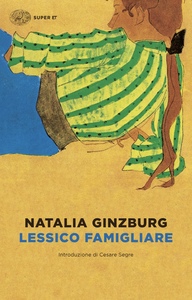Take a photo of a barcode or cover
emotional
funny
reflective
medium-paced
dark
emotional
funny
reflective
sad
tense
slow-paced
Plot or Character Driven:
Character
Strong character development:
Complicated
Loveable characters:
Complicated
Diverse cast of characters:
Complicated
Flaws of characters a main focus:
Yes
adventurous
emotional
funny
informative
inspiring
lighthearted
medium-paced
This book read like a never ending collection of anecdotes with so many names and details that I cared nothing for anyone. The title drew me in; the content put me to sleep.
dark
funny
reflective
medium-paced
Plot or Character Driven:
Character
Moderate: Death, Emotional abuse, Genocide, Racial slurs, Suicide, Violence, Police brutality, Antisemitism, War
emotional
inspiring
reflective
medium-paced
Plot or Character Driven:
Character
Strong character development:
No
Loveable characters:
Yes
Diverse cast of characters:
Yes
Flaws of characters a main focus:
Yes
medium-paced
Plot or Character Driven:
Character
Strong character development:
Complicated
Loveable characters:
Complicated
Diverse cast of characters:
Yes
Flaws of characters a main focus:
Complicated
Iniziato affrontandolo forse con spirito un po' troppo prevenuto e con alte aspettative nello stesso tempo, ma per me si è trattato piú di Noia Famigliare.
(Il padre iniziatore del padre-con-problemi-di-rabbianissues. Sinceramente lo avrei picchiato una pagina sí e l'altra pure).
(Il padre iniziatore del padre-con-problemi-di-rabbianissues. Sinceramente lo avrei picchiato una pagina sí e l'altra pure).
informative
inspiring
reflective
medium-paced
The book starts with a beautiful nostalgia, the microdialect of this familial microcommunity populated by silly phrases. Extremely charming and relatable.
Time passes subtly, marked by tone. Siblings get jobs, get arrested, get married. Halfway through the novel, the narrator, once detached from the action of the characters, suddenly marries, too, and we start to see glimpses into her own life, not just the lives of those around her.
Between the text and the footnotes, the book reads like Y Tu Mamá Tambien’s foreground and background: lovely familial squabbles and rumors (from the review on the back, “the deepest sorrows and smallest pleasures of everyday life”) occupy the foreground, while real-life context of historical figures and events linger in the background—a family friend is an antifascist, a lover’s sister is a prominent writer, a cousin later dies in the prison.
Ginzburg’s tone reads like an Italian Tao Lin, with its matter-of-factness and quirky choppiness. Even her writing on the autobiographical squabbles of family remind me of Tao’s Leave Society: immature parents, silly lingo, disaffected narrators. But Ginzburg’s tone is warmer and more mature and people-centered.
I found the novel to be a little bogged-down by the quantity of characters, sometimes hard to follow. But I definitely learned more about Italian communists during the period.
Time passes subtly, marked by tone. Siblings get jobs, get arrested, get married. Halfway through the novel, the narrator, once detached from the action of the characters, suddenly marries, too, and we start to see glimpses into her own life, not just the lives of those around her.
Between the text and the footnotes, the book reads like Y Tu Mamá Tambien’s foreground and background: lovely familial squabbles and rumors (from the review on the back, “the deepest sorrows and smallest pleasures of everyday life”) occupy the foreground, while real-life context of historical figures and events linger in the background—a family friend is an antifascist, a lover’s sister is a prominent writer, a cousin later dies in the prison.
Ginzburg’s tone reads like an Italian Tao Lin, with its matter-of-factness and quirky choppiness. Even her writing on the autobiographical squabbles of family remind me of Tao’s Leave Society: immature parents, silly lingo, disaffected narrators. But Ginzburg’s tone is warmer and more mature and people-centered.
I found the novel to be a little bogged-down by the quantity of characters, sometimes hard to follow. But I definitely learned more about Italian communists during the period.



